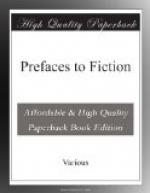’Tis an indispensible Necessity to end a Story to satisfie the Disquiets of the Reader, who is engag’d to the Fortunes of those People whose Adventures are described to him; ’tis depriving him of a most delicate Pleasure, when he is hindred from seeing the Event of an Intrigue, which has caused some Emotion in him, whose Discovery he expects, be it either Happy or Unhappy; the chief End of History is to instruct and inspire into Men the Love of Vertue, and Abhorrence of Vice, by the Examples propos’d to them; therefore the Conclusion of a Story ought to have some Tract of Morality which may engage Virtue; those People who have a more refin’d Vertue are not always the most Happy; but yet their Misfortunes excite their Readers Pity, and affects them; although Vice be not always punish’d, yet ’tis describ’d with Reasons which shew its Deformity, and make it enough known to be worthy of nothing but Chastisements.
THE JEWISH SPY:
BEING A
PHILOSOPHICAL, HISTORICAL and
CRITICAL Correspondence,
By LETTERS
Which lately pass’d between certain JEWS
in Turky, Italy, France, &c.
Translated from the ORIGINALS into French,
By the MARQUIS D’ARGENS; And now done into English.
THE SECOND EDITION.
VOL. I.
[Illustration]
LONDON:
Printed for D. BROWNE, without Temple-Bar; R. HETT, in the Poultry; J. SHUCKBURGH, in Fleet-street; J. HODGES, on London Bridge; and A. MILLAR, in the Strand. M DCC XLIV.
[Illustration]
LETTER XXXV.
AARON MONCECA to ISAAC ONIS, a Rabbi, at Constantinople.
Paris——
I still expect the Books from Amsterdam; and have writ several times to Moses Rodrigo to press him to send them to me; but to no purpose: He puts me off to the End of the Month, and I shall not be able to send them to Constantinople in less than five Weeks.




